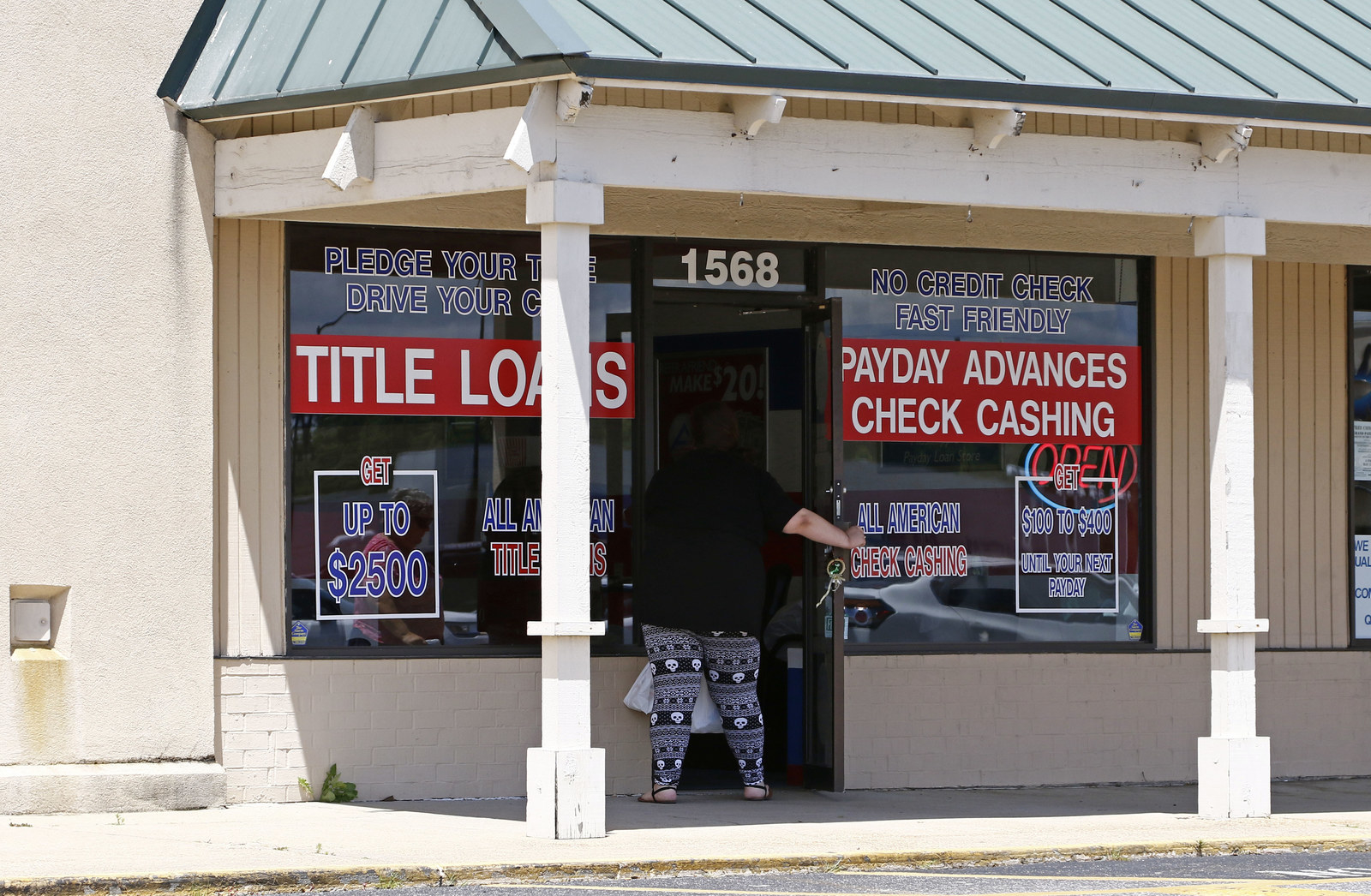
House Republicans have passed the Financial CHOICE Act, a bill that would eliminate and overhaul much of the 2010 Dodd-Frank Act, the financial laws introduced by the Obama administration in the wake of the financial crisis.
If the bill passes the Senate and is signed by President Trump, it would be the biggest single step toward a conservative overhaul of financial regulation. It would also severely clip the wings of the regulator that has cracked down on the financial industry in recent years — forbidding it from regulating payday loans, in just one example.
By picking apart the Dodd-Frank laws, Republicans say the Financial CHOICE Act will liberate Wall Street from burdensome regulations that have weighed down the economy. Democrats and consumer advocates warn it could lead to another financial crisis.
A major target of the bill is the Consumer Financial Protection Bureau. It would lose much of its authority to create new rules, and its director could be fired by the president at any time. Currently, the CFPB director — a presidential appointee — can only be fired "for cause," and the current chief, an Obama era holdover, is scheduled to remain in the job until 2018.
The bill would also strike out one of the CFPB's signal efforts: its work to regulate small-dollar, high interest loans. A provision of the CHOICE Act would bar the Bureau from writing rules "with respect to payday loans, vehicle title loans, or other similar loans."
"This legislation would bring us back to that place where there would be no watchdog," Yana Miles, policy counsel for the consumer advocacy group Center for Responsible lending, told BuzzFeed News. "That means if your grandmother gets conned into a payday loan, or if your cousin in the military has an account and their lending institution decides they want to open a fraudulent account in their name, their recourses are severely limited."
The Financial #CHOICEAct ends bailouts. Period.
The bill is masterminded by Jeb Hensarling, the conservative chairman of the House Financial Services Committee, and reflects the long-stated Republican approach to financial reform — almost the complete opposite of what House and Senate Democrats accomplished when the Dodd-Frank laws were passed on a near-party-line vote in 2010.
Instead of bringing more of the financial sector under federal oversight, with a focus on how different non-bank companies can affect the financial system, it would release many types of companies from Dodd-Frank's more comprehensive oversight, and exempt smaller banks from the rules.
“The Financial CHOICE Act offers economic opportunity for all and bank bailouts for none," Hensarling said in a statement. "The era of ‘too big to fail’ will end and we will replace Dodd-Frank’s growth-strangling regulations on community banks and credit unions with reforms that expand access to capital so small businesses can create jobs and consumers have more choices and options when it comes to credit."
View this video on YouTube
Congresswoman Maxine Waters, the top Democrat on the financial services committee, argued during a lengthy markup of the bill in May that it is "a vehicle for Donald Trump's agenda to get rid of financial regulation and help out Wall Street" which makes it "an invitation for another Great Recession, or worse."
At the center of the debate around the bill is the Consumer Financial Protection Bureau, which creates and enforces consumer protection laws.
The bureau has cracked down on auto loan companies, prepaid debit cards and for-profit colleges. Most notably, it led an investigation and enforcement action against Wells Fargo for opening millions of unauthorized bank accounts to boost sales figures. The bank was issued a $100 million fine.
Republicans have called on Trump to fire the bureau's director, Richard Cordray, arguing that he failed to act quickly enough on the Wells Fargo scandal, and have taken aims at reducing the agency's budget.
If passed by the Senate, the CHOICE Act would give the president authority to fire Cordray at will. It would also put Congress in charge of the agency's funding.
The Bureau's mission would also be restricted to enforcing pre-Dodd-Frank consumer protection rules, and it would have a limited ability to write new rules or encourage changes in corporate behavior through tools like its public database of consumer complaints against businesses.

"While the act purports to protect consumers from over-regulation by federal agencies, its far-reaching consequences would make consumers more vulnerable to fraud and abuse in the marketplace," a group of 21 Attorneys General wrote in a letter to the House of Representatives on Wednesday. "The Act would effectively cripple the CFPB from doing the job it has been doing so effectively since its inception."
The House vote is just the first step in overhauling Dodd-Frank. It still faces an uphill battle to pass through the Senate, where it could be blocked by Democrats.
While the bill passed today easily on a near party-line vote, leaders in the Senate have indicated they would prefer a bipartisan process. Senate Mike Crapo, the Idaho Republican and chair of the Senate Banking Committee, said Thursday that they would “over the coming months…begin to explore these proposals with the goal of ultimately passing a meaningful and bipartisan reform package.”
Hensarling said Thursday he was open to working with the Senate on a bill that ultimately reach President Trump’s desk. "I still think he has high hopes of putting together a companion legislation," Hensarling said according to CNN. "What a package would look like I don't necessarily know.”


